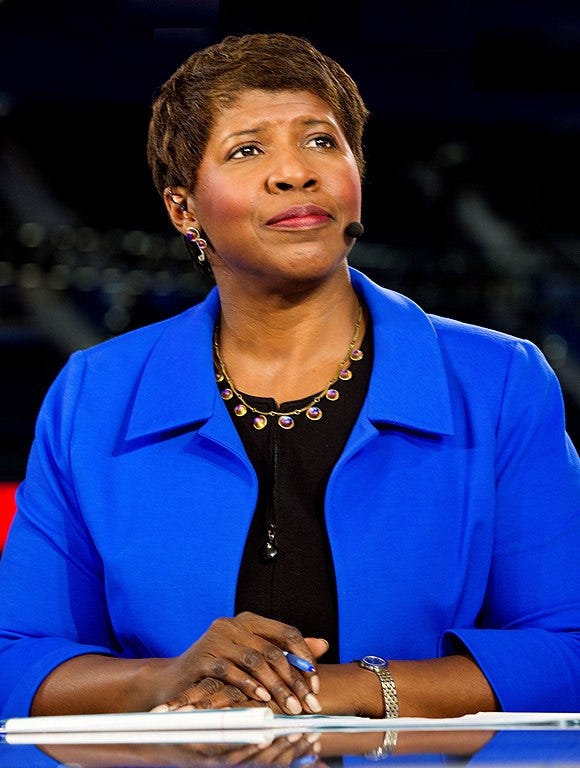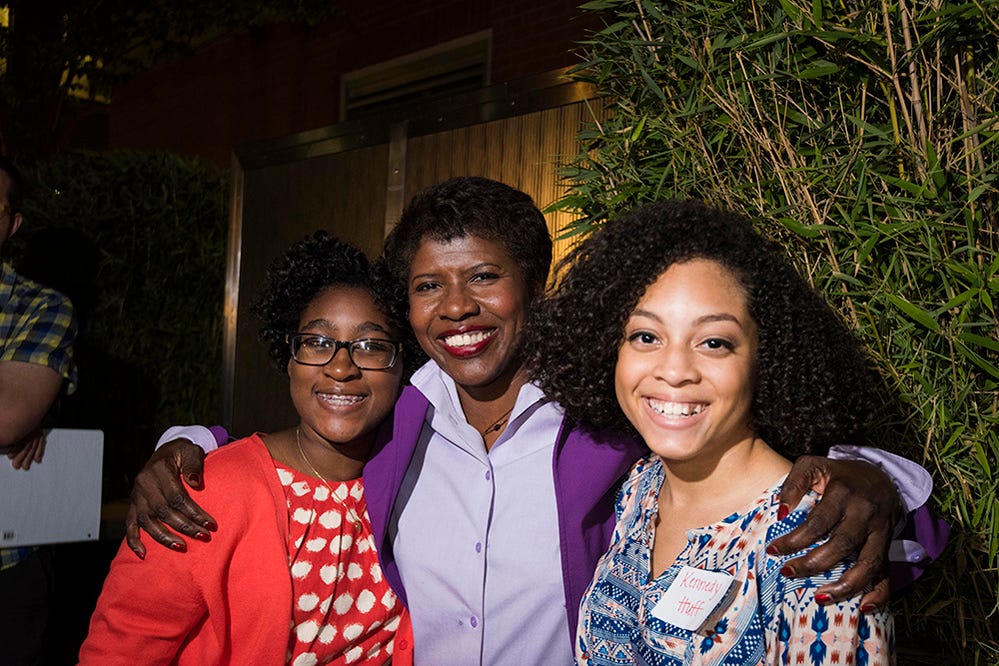This week’s presidential debate, co-moderated by Linsey Davis and David Muir, called to mind the story of another figure in American television reporting.
During the mid-1970s, a journalism student working as an intern at the Boston Herald-American found a note on her desk. It said, “Nigger, go home.” Her employer was horrified — her own reaction was, “That was really unfortunate, but I have work to do.” Another young person might have been intimidated, but the one word that was said to describe this novice reporter was “fearless.” Her name was Gwen Ifill.
Ifill went on to a career that secured her place among our most celebrated and admired journalists. She worked at the Baltimore Evening Sun, the Washington Post, and The New York Times during the 1980s and 1990s. She built a reputation as a relentless reporter who displayed the highest standards of accuracy and professionalism. In 1994, at thirty-nine, she landed a position as Capitol Hill reporter for NBC. She would become best known for her work on television.
All through her working life, Ifill had to face an undertone of opposition, of which that note on her desk had been an emblem. She was a woman. She was Black. Nothing ever came easily for her. When she was criticized for covering Barack Obama, she noted: “No one's ever assumed a white reporter can't cover a white candidate.”
She was the daughter of immigrants — both her parents were from Barbados, her father by way of Peru. He was a minister with the African Methodist Episcopal (AME) church. Ifill was born in 1955 in Queens, New York, but lived in a variety of eastern cities as her father was assigned to churches in places like Chambersburg, Pennsylvania, and Buffalo, New York. She graduated high school in Springfield, Massachusetts, having seen a wide slice of America.
Although she never married, her extended family was vital to her, as was her religious faith. Her parents passed on a keen interest in the events of the day—the family never missed the broadcast of a political convention (of either party) or of a presidential debate. Growing up during the years of the civil rights movement riveted her attention to the meaning of public events.
Once out in the world, Ifill strode ahead with her career. She was the first Black woman to moderate a major news show when she took over Washington Week in Review. She covered conventions, moderated debates, and finally landed a position as co-anchor at the prestigious PBS NewsHour.
Through it all, Ifill profit from an exuberant personality and what one colleague called a “wise smile.” Judy Woodruff, her co-anchor at PBS said, “Gwen had an incandescent quality about her.”
Ifill collected a catalogue of honors and awards. Twenty colleges conferred honorary doctorates on her. She was given the Goldsmith Career Award for Excellence in Journalism by Harvard. Her face appeared on a postage stamp with the word “Forever” printed by her portrait.
Today, we Americans find ourselves in a time of extraordinary political contention and division. Authentic journalists in particular are the targets of loathing, attacked by venal politicians who love to trash the “mainstream media.” Never has television journalism had a greater need for the civility and dignity of reporters like Ifill, reporters who understand that truth matters and that listening is not weakness.
As Jelani Cobb wrote in The New Yorker, “There is a great deal of work ahead of those of us who take democracy seriously. It's heartbreaking to consider that we will have to do it without Ifill at our side.”
Gwen died of cancer in November 2016. She was sixty-one.
She was well known not just for climbing the ladder but for pulling others up after her. She helped many women and persons of color to find their bearings in the rough-and-tumble world of journalism. “It’s not how you get in the door,” she emphasized, “it’s what you do once you get through the door.” Some of those to whom she was a mentor were able to walk through doors that Gwen had had to kick open.
Named Washingtonian of the Year in 2015 by the DC Magazine, she said, “We can't expect the world to get better by itself. We have to create something we can leave the next generation.”
She was a fan of the musical Hamilton and was drawn to a lyric that asked the question: “Legacy, what is a legacy?” The answer: “It's planting seeds in a garden you never get to see.”
Gwen planted countless seeds among her friends and colleagues. She was always willing to help, to share, to cheer, to support others, and to lead by her own lofty example.
Back in 2008, she was among the first to bring a national spotlight to a woman who was then the district attorney of San Francisco. “She’s brilliant, she’s smart . . . she’s tough and she’s got a big future.” To see that woman, Kamala Harris, on the stage this week as a candidate for president or our nation would surely have brought a wise smile to Gwen’s face.







I loved her as the moderator of "Washington Week" on PBS. She was, hands down, the best that show ever had. She is missed.
Thanks for remembering Gwen Ifill; I have a sheet of her U.S. Postage Stamps stashed away.